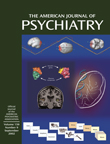This interesting book on affect regulation and its relationship to psychopathology has a unique style and helps the reader to view psychopathology outside of a strictly DSM-IV-type approach. The author makes the case for the power of negative affects in the development of psychopathology and physiological arousal. The book consists of four sections that focus on the model of affect regulation, the evidence for the model, its relationship to clinical syndromes, and future directions.
In chapter 1 the rationale for the model of affect regulation as a core factor in different types of psychopathology is discussed in great detail. The author defines affect, emotional feeling, and arousal, including general arousal factors and the risk factors of psychopathology. This is followed by a discussion of the brain-mind factors that are involved in affect regulation. The author relates current working models of psychopathology, such as psychoanalysis and its derivatives, cognitive behavior, and interpersonal approaches, to affect regulation. She proposes an integrated model linking mind and brain based on the framework used to explain panic attacks: states of arousal arise in the reticular activating system and are interpreted through limbic-frontal circuits; the amygdala with its multiple links generates a state of arousal when responding to certain stimuli.
The second part of the book provides a comprehensive literature review about affect and its genetic and constitutional factors. The factors that may increase the vulnerability of individuals to environmental stressors are discussed. Insecure attachment is a vulnerability factor for affect dysregulation and may predispose the child to develop a psychiatric disorder. Stress, trauma, and abuse play important roles in psychopathology and are dealt with in considerable detail. The idea that some stressors are normative and necessary for optimal growth and development is well presented. The concept that chronic arousal leads to affect dysregulation resulting in psychiatric disorders is introduced. In chapter 7, the author provides a superb description of the neurobiology of affective regulation. She applies the concepts of behavioral neurology from Mesulam’s text
(1) to affect regulation in a convincing manner.
Part 3 of the book applies the model to several psychiatric syndromes. The internalizing disorders such as mood and anxiety disorders are discussed in great detail in chapter 9, which includes a review of the literature from animal as well as human studies. In addition, the author pays due attention to genetics as well as twin studies to propose that the shared genetic liability in these disorders is the sensitivity to environmental factors. In chapter 10, she extensively explores child behavior under the concept of externalizing disorders, including the origin of disruptive behaviors in the complex interaction of genetic and environmental factors. The role of affect dysregulation in disorders such as conduct disorder, adult antisocial personality disorder, oppositional defiant disorder, and attention deficit hyperactivity disorder is explored. A separate chapter is devoted to the psychotic disorders, including schizophrenia. The author takes up basic issues of definition, focusing on the disturbances of affect and cognition and exploring the relationship of psychotic disorders to mood disorders. She also deals with neurobiology in considerable detail, discussing the issue of negative and positive symptoms and the current thinking in this regard.
This book is an attempt to provide reasonable understanding of the body-mind relationship using the model of affect regulation as a core factor leading to a variety of psychopathologies. The book is well written and carefully referenced. It is well organized by sections that are linked by common themes. What is even more helpful is that the themes mentioned here are clearly demonstrated in the research. The discussion and justification of the model are very well supported by comprehensive literature reviews. The author has made outstanding efforts to put her clinical experiences into a practical framework of thinking that would contribute to the comprehension and management of psychiatric disorders. The book is highly recommended to professionals in mental health because it would help them conceptualize illness from the perspective of affect regulation.

